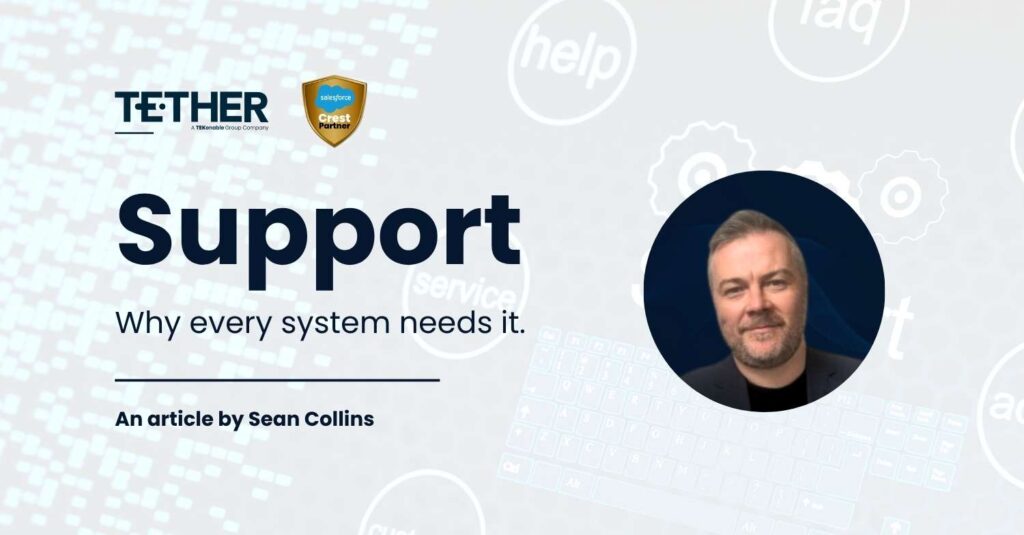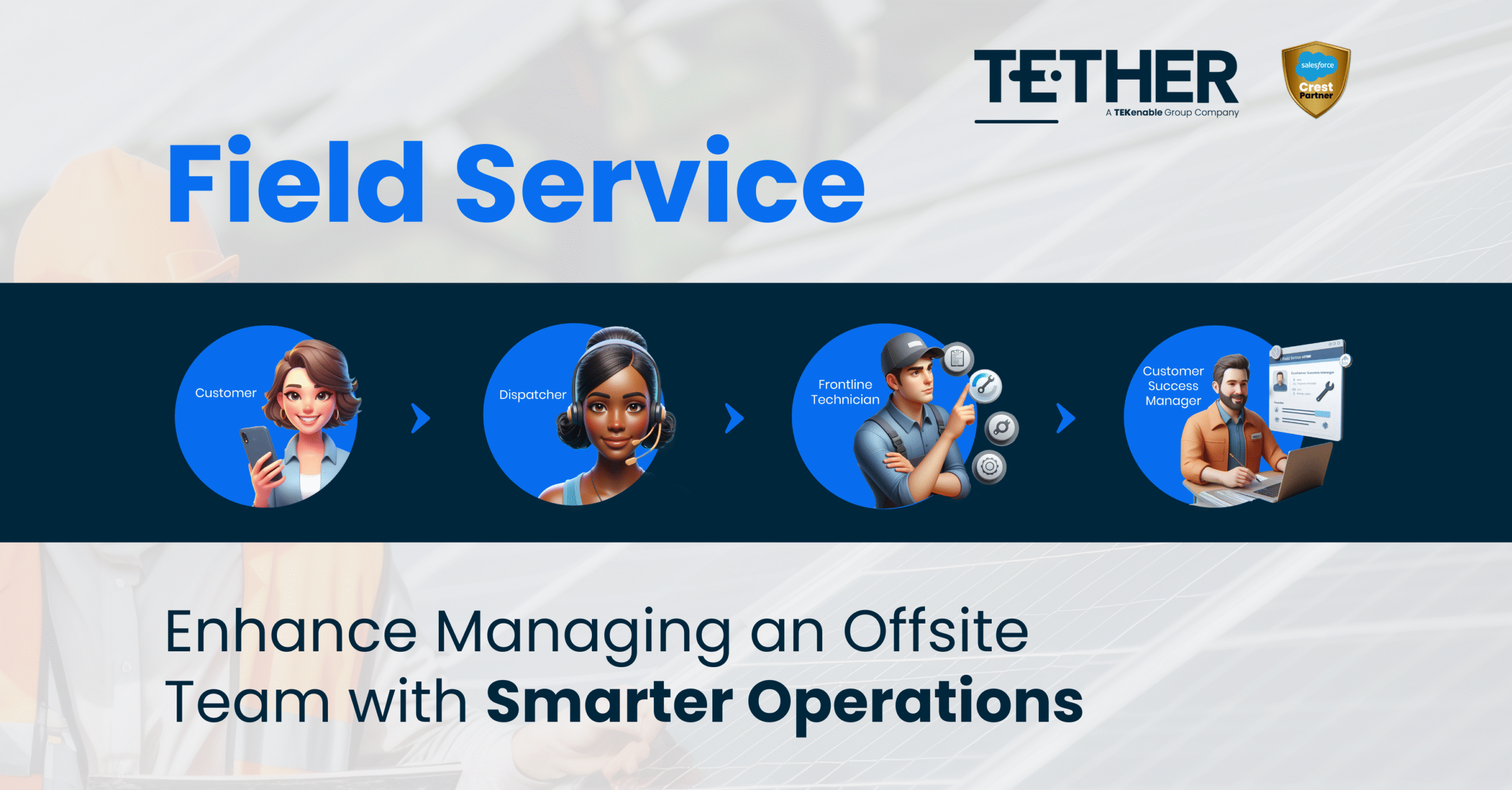Imagine this: your sales team is moments away from securing a new contract, armed with insights from your meticulously managed CRM platform. But just as they’re about to seal the deal, an error message appears. You can’t close the opportunity, leaving your team scrambling to access vital customer information—and your customer waiting for a contract you can’t send.
Meanwhile, across the office, your service team faces a similar nightmare, struggling to address urgent customer inquiries without a fully functioning service platform. In the fast-paced world of sales and service, the repercussions of inadequate support can be swift and severe, jeopardising not only revenue opportunities but also customer trust and satisfaction.
The Reality: It Happens More Often Than You Think
While this scenario may sound like a relic of the past, it’s still a common occurrence in businesses worldwide. Surprisingly, the root cause often lies in the undervaluation of ongoing support and maintenance for critical systems like Salesforce.
Many organisations treat support as an afterthought, failing to prioritise the continuous care needed to keep their Salesforce instance running smoothly. But Salesforce isn’t just a tool—it’s the heartbeat of your sales and service operations. To unlock its full potential, it requires ongoing attention and expertise.
The Pitfalls of Neglecting Salesforce Support
System Downtime and Disruption
Without regular maintenance, any system is vulnerable to technical issues. Downtime can halt operations, leaving teams unable to access customer data or process transactions.
Data Loss and Integrity Risks
Salesforce holds valuable information about leads, customers, and sales activities. Without proper backup and data checks, you risk losing critical business data—leading to missed opportunities and damaged relationships.
Outdated Configurations and Inefficiencies
As your business evolves, so should your Salesforce setup. Without support, you may be stuck with a rigid system that no longer meets your needs, hindering innovation and competitiveness.
Why You Need an In-House Salesforce Champion
A Dedicated Point of Contact
An in-house champion serves as the go-to expert for all Salesforce-related issues, ensuring alignment with your business goals.
Deep Understanding of Your Business
They know your workflows, preferences, and challenges, enabling tailored configurations that drive adoption and maximise value.
Promoting a Culture of Excellence
By sharing best practices and success stories, your champion fosters enthusiasm and confidence in Salesforce across teams.
The Power of Managed Support Agreements
Proactive Monitoring and Maintenance
Managed support providers identify and resolve issues before they escalate, minimising downtime and ensuring system stability.
Access to Broader Expertise
Consultancies offer certified experts with diverse skills, ready to assist with customisation, integration, and optimisation.
Scalability and Flexibility
As your business grows, managed support adapts to your changing needs—whether expanding markets or launching new products.
Empowering Your Team
Regular training and knowledge transfer sessions equip your staff to use Salesforce effectively and independently.
Choosing the Right Support Model
Is a Managed Service Contract Right for Me?
The decision depends on your organisation’s needs, resources, and goals.
- In-House Champion: Ideal for businesses with internal expertise and a need for personalised support.
- Managed Service Contract: Best for organisations seeking comprehensive support without the overhead of maintaining an internal team.
Evaluating Cost vs. Value
While managed services may seem costly upfront, they often reduce total cost of ownership (TCO) over time through proactive maintenance and access to specialised skills.
Conclusion: Prioritise Support to Unlock Salesforce’s Full Potential
Whether you choose an in-house champion or a managed service provider, the key is to prioritise ongoing support and maintenance. Salesforce is a powerful platform—but only when nurtured with the right resources and expertise. By investing in support, you safeguard your operations, enhance customer satisfaction, and position your business for sustainable growth.
FAQ’s
1. Why is ongoing Salesforce support necessary if the system is already set up?
Even after initial setup, Salesforce requires continuous updates, monitoring, and optimisation to stay aligned with your evolving business needs. Without ongoing support, you risk system downtime, data loss, and inefficiencies that can impact customer satisfaction and revenue.
2. What are the risks of not maintaining our Salesforce instance?
Neglecting support can lead to:
- System outages that disrupt sales and service operations.
- Data corruption or loss of critical customer information.
- Outdated configurations that no longer match your workflows.
- Security vulnerabilities due to missed updates and patches.
3. What does an in-house Salesforce champion actually do?
An in-house champion acts as your internal Salesforce expert. They:
- Troubleshoot issues and support users.
- Customise Salesforce to fit your business processes.
- Promote best practices and user adoption.
- Align Salesforce functionality with strategic goals.
4. How does a managed support agreement differ from having an in-house champion?
Managed support agreements offer:
- Proactive system monitoring and maintenance.
- Access to a team of certified Salesforce experts.
- Scalable services that grow with your business.
- Regular training and knowledge sharing for your team.
In contrast, an in-house champion provides personalised, internal support but may lack the breadth of expertise and scalability offered by a consultancy.
5. Is a managed service contract more cost-effective than hiring internally?
While managed services may have higher upfront costs, they often reduce long-term expenses by:
- Minimising downtime and disruptions.
- Avoiding recruitment and training costs.
- Providing predictable pricing and broader expertise. This can result in a lower total cost of ownership (TCO) and higher return on investment (ROI).
6. How do I decide between an in-house champion and a managed service provider?
Consider:
- Your internal resources and expertise.
- The complexity of your Salesforce setup.
- Your growth plans and need for scalability.
- Budget and long-term strategic goals.
Many organisations benefit from a hybrid approach—having an in-house champion supported by a managed service provider for specialised tasks and strategic guidance.




